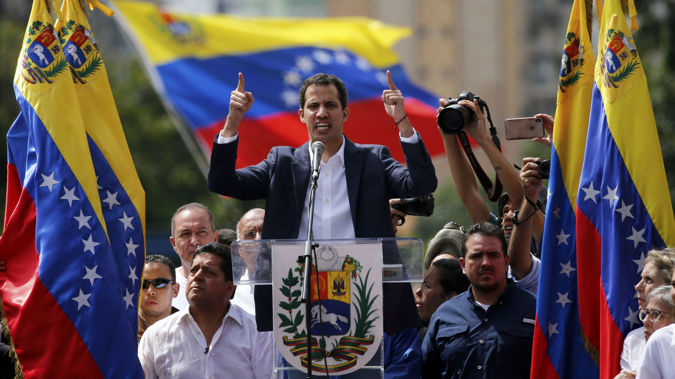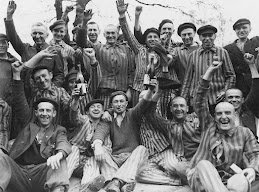THE POLITICAL AND HUMANITARIAN CRISIS IN VENEZUELA: A CLOSER LOOK
 |
| Fig.1 - People demonstrating in the streets of Venezuela (Source: thinkreadact.com) |
What is currently happening in Venezuela is far from only being a political crisis. The widespread human rights violations are forcing 3 million people to flee and seek asylum in other countries, in what it is referred to be the biggest refugee crisis in the history of Latin America.
How did the country reach this point? In 2013, Venezuelan President Nicolás Maduro won the elections amid reports of corruption and unfair counting of votes. Hundreds of thousands of people took part in protests calling for the removal of the President at first, and then accusing him of being responsible for the economic crisis. As a matter of fact, shortly after Maduro came to power, the price of oil dropped, and because 98% of Venezuela's export earnings come from oil, the state of the country declined rapidly. The government also started printing more money, regularly increasing the minimum wage, and implementing price controls on several products. Maduro did not take responsibility for the damages, and blamed the United States and other countries for starting an “economic war” against Venezuela.
In May 2018, the opposition contested the results of the elections for the second mandate of President Maduro and in January 2019, the opposition leader Juan Guaidó declared himself president ad-interim, as ruled by the Constitution in case the elections are proved to be rigged. Despite the recognition by the European Union, the United States, and most Latin American countries of Mr Guaidó as the legitimate leader of the country, Maduro is still refusing to step down.
While the political crisis sparked in 2013, much of the current unrest in Venezuela can be traced back to March 2017, when the Supreme Court of Justice - backed by the government - moved to take over the National Assembly, where the opposition held a majority. This triggered mass protests from April to July that were repressed by the Maduro administration through often-violent crackdowns and jailing opponents. Violence has not stopped since.

Fig.2 - Juan Guaidó, self-proclaimed president of Venezuela (Source: newstalkzb.co.nz)
The chaos in Venezuela caused a shortage of medicines, food and water, and a generalized unsafe environment for the political opponents who are facing the risk of being jailed. Getting arrested in Venezuela often means being subjected to serious abuses that in some cases amount to torture—including severe beatings, electric shocks, asphyxiation, and sexual abuse. Children and teenagers have been reportedly arrested as well, and jailed protesters have been said to have frequently been tried in military courts, which is against international law. Extra judicially killings are also worrying the international community.
Nicolás Maduro continues to deny that the country is experiencing a human rights crisis. Therefore, he has not accepted the international humanitarian assistance that has been repeatedly offered. In some cases, convoys of trucks carrying food aid and medical supplies set off from border towns in Colombia and Brazil were attacked and burnt, and a ship carrying 250 tons of humanitarian aid from Puerto Rico was forced to turn back when the Venezuelan Navy threatened to open fire. As a result of the violence, none of the shipments has made it past Venezuelan border blockades so far.
The impunity for the abuses and the violations of human rights above has been common since former Attorney General Luisa Ortega Díaz was fired in August 2017. In early February 2019, the Lima Group, a coalition of several Latin American countries and Canada, called for the urgent delivery of humanitarian aid and for international governments to refrain from doing business with the nation “in oil, gold and other assets.” Moreover, on 26 September 2018, six countries (Argentina, Canada, Colombia, Chile, Paraguay and Peru) referred Venezuela to the International Criminal Court. It is not clear how and when the humanitarian crisis will end, but what is certain is that the people are in need of assistance and justice.
Giulia Mizzon
Sources and insights:
https://teachbeyond.org/news/2018/11/venezuelans-south-americas-largest-refugee-crisis/
https://www.theguardian.com/world/2013/apr/15/nicolas-maduro-wins-venezuelan-election
http://time.com/3619052/oil-prices-maduro-venezuela/
https://www.bbc.com/news/world-latin-america-46999668
http://thinkreadact.com/crisis-in-venezuela/
https://www.theguardian.com/world/2019/jan/15/juan-guaido-venezuelan-opposition-leader-challenging-maduros-rule
https://www.reuters.com/article/us-venezuela-politics/venezuela-seeks-to-cool-outrage-over-court-power-grab-idUSKBN1721P8
https://www.newstalkzb.co.nz/news/world/venezuela-in-crisis-as-juan-guaido-declares-himself-president/
https://www.hrw.org/blog-feed/venezuelas-crisis
https://www.hrw.org/report/2017/11/29/crackdown-dissent/brutality-torture-and-political-persecution-venezuela


Comments
Post a Comment